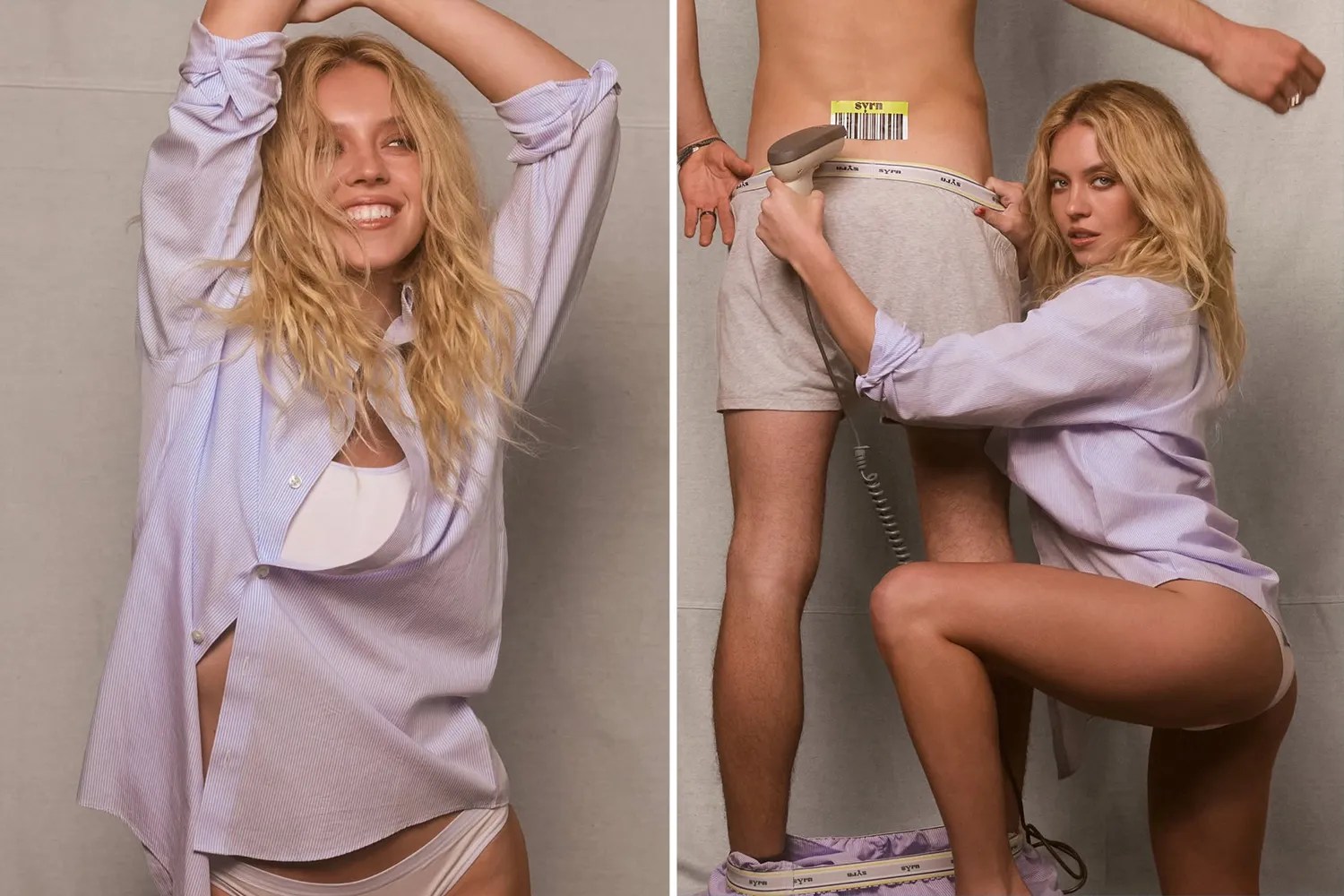Sydney Sweeney strips to cheeky underwear as she pulls down on mystery man’s boxers in steamy photos

SYDNEY Sweeney has stripped down to cheeky underwear while pulling on a man’s boxers in sexy new photos for her lingerie line.
The actress recently launched her new lingerie brand, Syrn, and has been modeling the sultry undergarments in ad campaigns.
Her latest was posted on the brand’s official Instagram page on Tuesday, showing Sydney, 28, flashing her bare butt in revealing white underwear.
The Housemaid star covered the top half of her curvy figure with a loosely fitted long-sleeved shirt and had her long blonde hair styled in loose waves.
However, Sydney wasn’t the only one in the photo.
A mystery man also appeared in the pic, facing away from the camera, wearing nothing but boxers, and his pants were draped around his ankles.
Read More on Sydney Sweeney
Sydney latched onto the side of the man’s boxers with one hand and held a barcode scanner with the other, which she aimed at a barcode sticker on his lower back.
Another solo snap of The White Lotus star showed her smiling with her hands in the air, looking disheveled with the buttons on her shirt misaligned.
The caption announced Syrn’s “Midnight Snack Collection,” which was released earlier that day.
“She is absolutely stunning,” one fan gushed in the comments.
Most read in Entertainment
“OMG SHE IS SO PRETTY,” said another.
“I can’t wait to buy everything!!” a third added.
Sydney’s lingerie line rivals A-list celebrities Rihanna, Hailey Bieber, and Kim Kardashian, who also have widely successful lingerie brands.
The Christy star might have taken her racy promotional ads a bit too far after photos recently circulated of her littering the iconic Hollywood sign with dozens of bras.
Late last month, TMZ reported that Sydney had permission to film the sign but didn’t get clearance to touch or climb it, which she did in the ad.
The Hollywood Chamber of Commerce, which owns the sign, is reportedly investigating how Sydney’s team accessed the sign.
Sydney hasn’t yet commented on the legal situation, but she’s continued to post steamy content of her donning pieces from her collection.
The Anyone But You star is known for pushing the boundaries onscreen, which is especially seen in the Euphoria Season 3 trailer, where Sydney’s character, Cassie Howard, becomes an OnlyFans-style content creator.
“People forget that I’m playing a character, they think, ‘Oh, she gets naked on screen, she’s a sex symbol,’” Sydney previously said in an interview.
“I have no problems with those scenes, and I won’t stop doing them, but I wish there was an easier way to have an open conversation about what we’re assuming about actors in the industry.”







